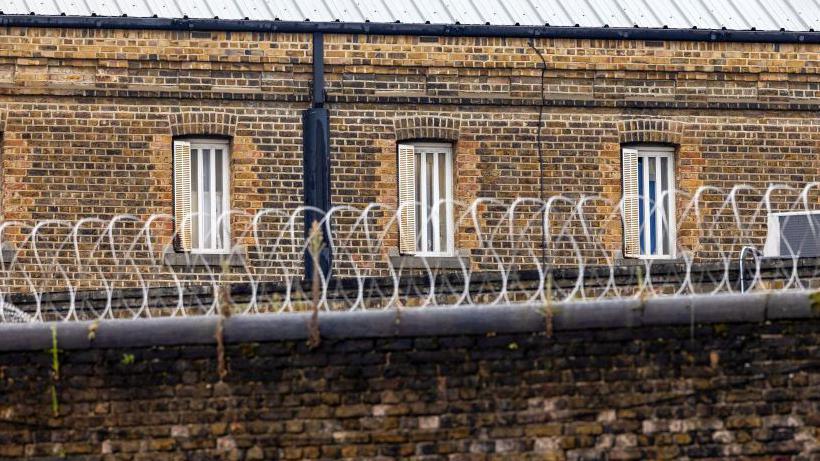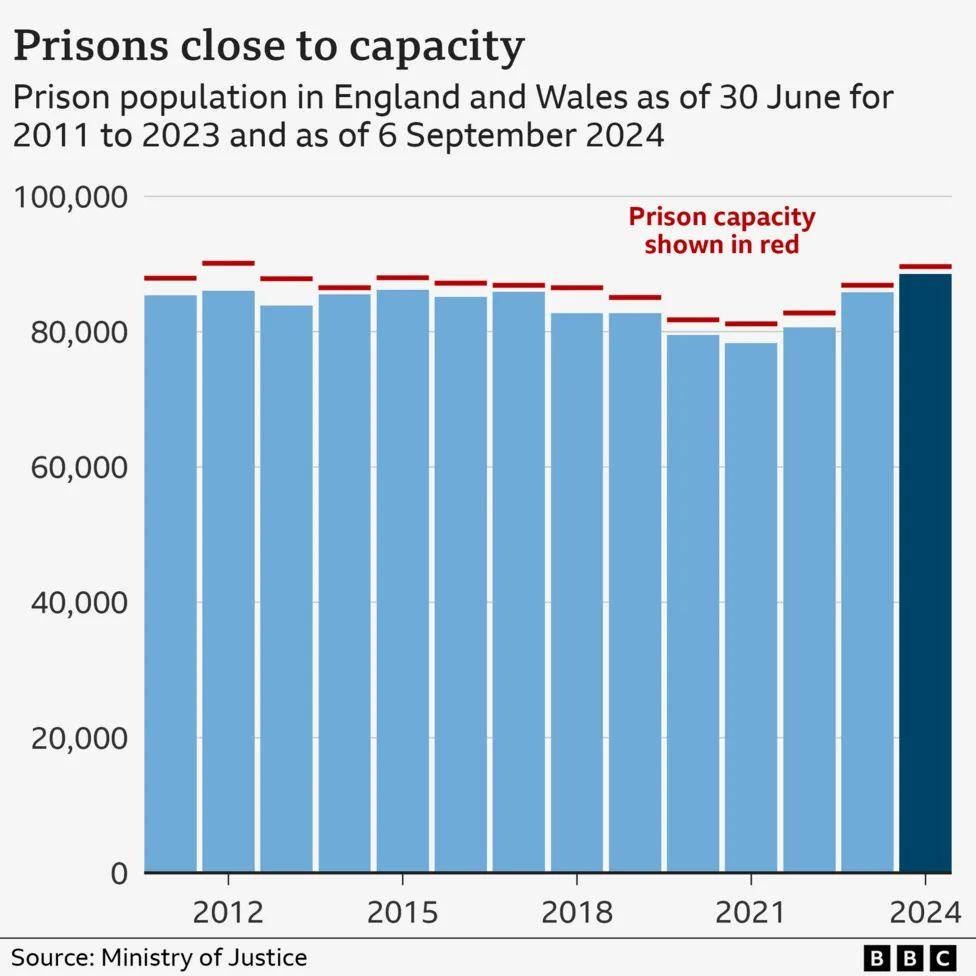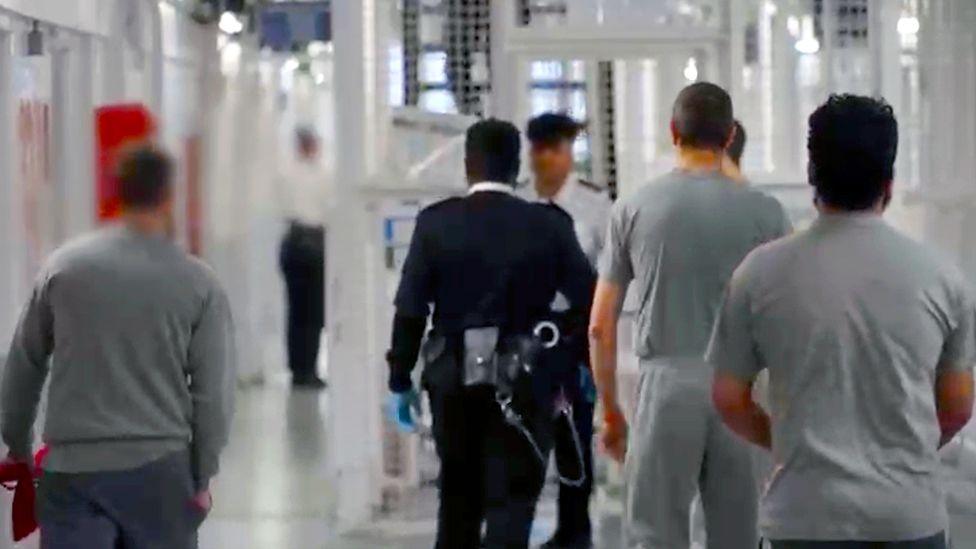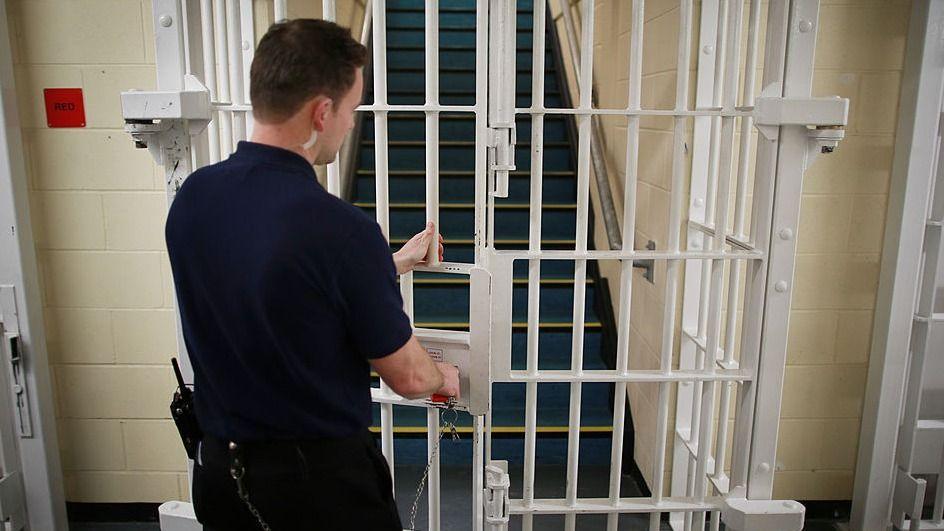Government defends early release scheme after freed prisoner charged with sexual assault

- Published
The government has defended the early release of prisoners after it emerged a former inmate allegedly sexually assaulted a woman on the same day he was freed.
Amari Ward, 31, was released on Tuesday as part of the policy, which aims to ease prison overcrowding.
He appeared at Croydon Magistrates' Court on Thursday charged with sexual assault and is due to attend Maidstone Crown Court next month.
The Ministry of Justice (MoJ) said the early release scheme was necessary because it had "inherited prisons in crisis and on the brink of collapse". Reoffenders would be punished, it added.
Ward is alleged to have "intentionally touched" a woman who did not consent in Sittingbourne, Kent, on Tuesday, according to court documents seen by the BBC.
He was arrested at an address in south London.
Ward was charged with sexual assault, denied bail and recalled to prison on Thursday.
A Ministry of Justice (MoJ) spokesperson said: "The government inherited prisons in crisis and on the brink of collapse.
"Had that happened, the courts would have been unable to hold trials and the police to make arrests."
Prisoners released early but some victims 'not warned'
- Published10 September 2024
More than 2,000 prisoners let out in a week after early release scheme
- Published13 September 2024
More than a third of early releases were violent offenders
- Published9 September 2024
The spokesperson said those that breached licence conditions or reoffended would be punished.
The Conservatives have previously said the government had "badly managed" the early release of prisoners, leading to "serious public concern" about the process.
Around 1,750 prisoners were freed early on Tuesday from jails across England and Wales.
Under the early release policy, some inmates were released after serving 40% of their sentence, instead of 50%.
There were jubilant scenes outside some prisons as inmates being let out early were greeted by friends and family, while others told reporters they feared being homeless.
The latest iteration of the early release scheme was implemented after July's general election, but the previous Conservative government had already started letting some inmates out ahead of schedule to ease overcrowding.

Some criminals serving prison sentences of less than four years for violent offences are among those eligible to be freed under the scheme.
The scheme excludes those convicted of domestic abuse, and what the government calls "connected crimes", such as stalking and controlling or coercive behaviours.
Rioters involved in this summer's unrest are also not specifically excluded from early release. They will only stay behind bars for longer if they are serving more than four years for a violent offence.
Terrorists and sex offenders are excluded and will not be freed early.
This month, prisons reached a record population of more than 88,500.
Some officials had previously warned that a percentage of those released were likely to reoffend. Earlier this month, Martin Jones, HM chief inspector of probation, said he thought there was "a certainty that some will reoffend".
He added that the risk of serious offences was rare but a risk that could not be eliminated.
Some prison unions have also expressed concern over the potential impact of the policy on victims.
In a statement, probation union Napo warned the scheme was “moving the problem from one place to another without properly assessing the risks”.
On Tuesday, Victims' Commissioner Baroness Newlove warned some people had not been informed of the early release of the person responsible for committing a crime against them.
Government data released earlier this week confirmed the prison population had fallen by 2,000, around 2% of the overall population, meaning there were 86,333 people in prisons in England and Wales as of Friday.
Related topics
- Published12 September 2024

- Published11 September 2024

- Published5 September 2024

